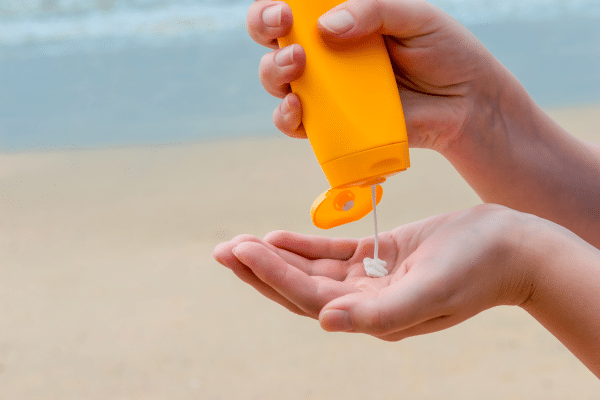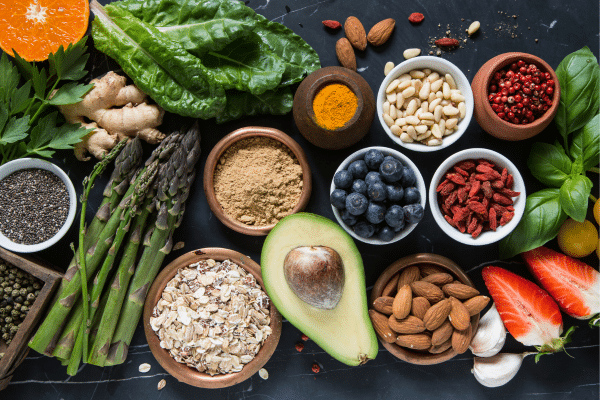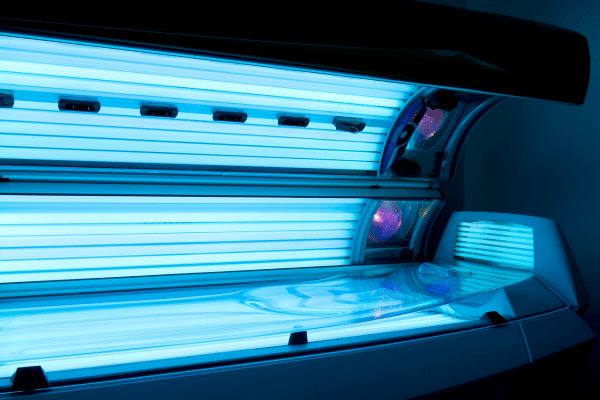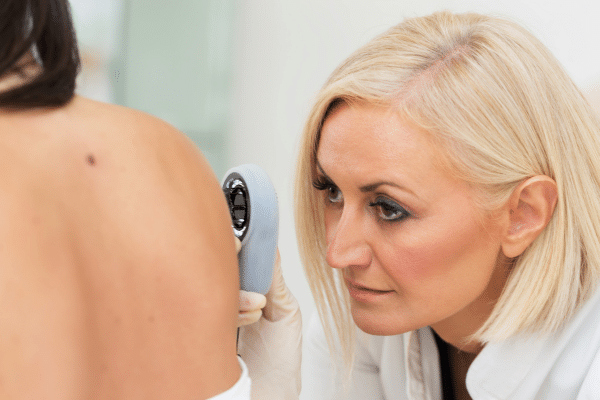Skin cancer is a growing concern globally, with millions affected every year. The rise in cases underscores the essential role of prevention and early detection. Fortunately, there are several effective strategies available for reducing the risk of this prevalent disease. By understanding and implementing measures like appropriate sunscreen use, maintaining a healthy diet, wearing protective clothing, and avoiding known risk factors, individuals can significantly mitigate their exposure to the harmful effects of ultraviolet (UV) rays. This article aims to provide valuable insights into these preventative steps, offering a comprehensive guide to safeguarding skin health.
Contents
Wear Sunscreen

Exposure to UV radiation from the sun is one of the leading causes of skin cancer. To mitigate this risk, the consistent use of sunscreen is crucial. Sunscreen acts as a protective layer, shielding the skin from harmful UVB and UVA rays. UVB rays are primarily responsible for sunburns, while UVA rays contribute to premature aging and can significantly damage the skin’s DNA. It is essential to choose a sunscreen with broad-spectrum protection to defend against both types of UV rays and prevent the cellular damage that can lead to skin cancer.
Applying sunscreen should be an integral part of daily skincare routines. It is advisable to use a product with a sun protection factor (SPF) of at least 30 to ensure effective protection. For optimal results, sunscreen should be applied generously to all exposed skin areas 15 minutes before venturing outdoors and should be reapplied every two hours, or more frequently if swimming or sweating occurs. By adhering to these guidelines, individuals can greatly enhance their defense against skin cancer.
Eat Right

A balanced diet plays an essential role in overall health and well-being, with specific nutrients contributing to enhanced skin protection. Foods rich in antioxidants, such as vitamins C and E, can neutralize harmful free radicals generated by UV exposure, reducing cellular damage and inflammation. Incorporating a variety of fruits, vegetables, nuts, and seeds can provide the body with these vital nutrients, bolstering the skin’s natural defenses and promoting cellular repair and regeneration.
Beyond antioxidants, certain nutrients, like omega-3 fatty acids found in fish and flaxseeds, offer additional skin benefits. They have anti-inflammatory properties that can mitigate the harmful effects of UV radiation. By adopting a diet rich in diverse, nutrient-dense foods, individuals equip their bodies with the necessary tools to combat the cellular damage that can lead to skin cancer, promoting healthier and more resilient skin in the process.
Wear Protective Clothing

Clothing serves as one of the first lines of defense against harmful UV rays. Fabrics and clothing styles designed to cover the majority of the body can significantly reduce UV exposure and the subsequent risk of skin cancer. Materials with a tight weave, darker colors, and specially designed UV-protection fabrics offer enhanced protection. Hats with broad brims can shield the face, neck, and ears, while sunglasses with UV protection can prevent damage to the eyes and the sensitive skin surrounding them.
Beyond the type of clothing, the manner of wear and situational adaptation are pivotal. During periods of intense sunlight, especially between 10 a.m. and 4 p.m., opting for long sleeves, pants, and wide-brimmed hats can prove beneficial. By adapting attire to the specific environment and weather conditions, individuals can ensure optimal protection against UV exposure, significantly mitigating the risk of skin cancer.
Avoid Tanning Beds

The allure of a bronzed complexion leads many to the use of tanning beds, often overlooking the associated health risks. Tanning beds emit concentrated UV radiation, exposing the skin to a higher intensity of harmful rays than natural sunlight. Studies consistently link tanning bed use to an increased incidence of skin cancers, including melanoma, the deadliest form of skin cancer. Awareness and avoidance of artificial tanning can significantly reduce skin cancer risk and prevent the adverse health impacts associated with UV overexposure.
As a safer alternative, individuals seeking a tanned appearance might consider sunless tanning products. These options, including lotions, sprays, and gels, can provide the desired skin tone without the damaging effects of UV radiation. By understanding the risks associated with tanning beds and seeking healthier alternatives, it is possible to enjoy a tanned appearance while significantly reducing the risk of skin cancer.
Take Vitamins And Supplements

Incorporating specific vitamins and supplements into a daily regimen can bolster the skin’s natural defenses against UV radiation. Antioxidants like vitamins C and E play a crucial role in neutralizing harmful free radicals produced by UV exposure. These antioxidants aid in cellular repair, reducing inflammation, and preventing DNA damage that can lead to skin cancer. Consistent intake of these vital nutrients, under the guidance of a healthcare professional, can enhance skin health and resilience.
Omega-3 fatty acids, another valuable supplement, are known for their anti-inflammatory properties. These essential fatty acids, commonly found in fish oil supplements, can mitigate the inflammatory response triggered by UV exposure, reducing redness and cellular damage. With a strategic approach to supplementation, individuals can strengthen their skin’s natural defenses, enhancing its ability to withstand and repair the damage incurred by UV exposure, and thereby reducing the risk of skin cancer.
Be Aware Of Your Family History

Genetics and family history play a significant role in the risk of developing skin cancer. Individuals with a family history of skin cancer are often at a higher risk, warranting increased vigilance and preventative measures. It’s essential to gather detailed information about the types and instances of skin cancer in family members, as this data can inform personal risk assessments and guide preventative actions. Regular screenings and consultations with healthcare professionals become paramount in these cases, ensuring early detection and treatment if necessary.
Customizing preventative measures based on family history can effectively mitigate the risk of skin cancer. For those with a genetic predisposition, intensified protective actions including rigorous sunscreen application, wearing UV-protective clothing, and seeking shade can be instrumental. It’s also essential for these individuals to adopt a proactive approach to screenings and health assessments to detect any abnormalities at an early stage, enhancing the efficacy of treatment and improving overall outcomes.
Visit A Dermatologist Yearly

Annual visits to a dermatologist can be a cornerstone in the early detection and prevention of skin cancer. Dermatologists are trained to identify the early signs of skin cancer, and regular examinations can ensure that any abnormalities are detected and addressed promptly. These professionals evaluate the skin for moles, spots, or growths that could potentially indicate skin cancer, providing immediate intervention and reducing the progression risk.
Moreover, dermatologists offer personalized recommendations for skin care and cancer prevention based on individual skin types and risk factors. These tailored strategies can include specific products, treatments, or lifestyle modifications to enhance skin health and resilience against cancer. By establishing a routine of yearly dermatological examinations, individuals can significantly contribute to early detection, effective treatment, and the prevention of skin cancer.
The Bottom Line
Adopting a comprehensive approach to skin cancer prevention encompasses protective clothing, avoiding tanning beds, dietary choices, and awareness of one’s family history, coupled with annual dermatologist visits. Each plays a crucial role in a multifaceted defense strategy against skin cancer. The keys to prevention lie in consistent application and integration of these practices into daily life. With knowledge and actionable steps, it’s entirely possible to significantly mitigate the risk of skin cancer, safeguarding skin health for years to come. Awareness, education, and proactive measures are the fundamental pillars supporting this critical health goal.


